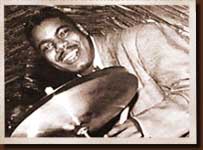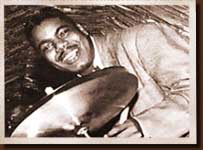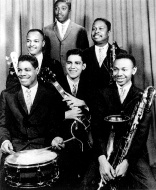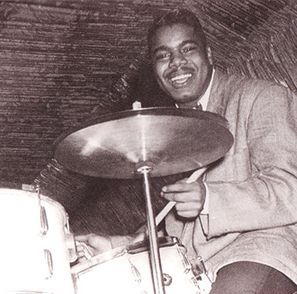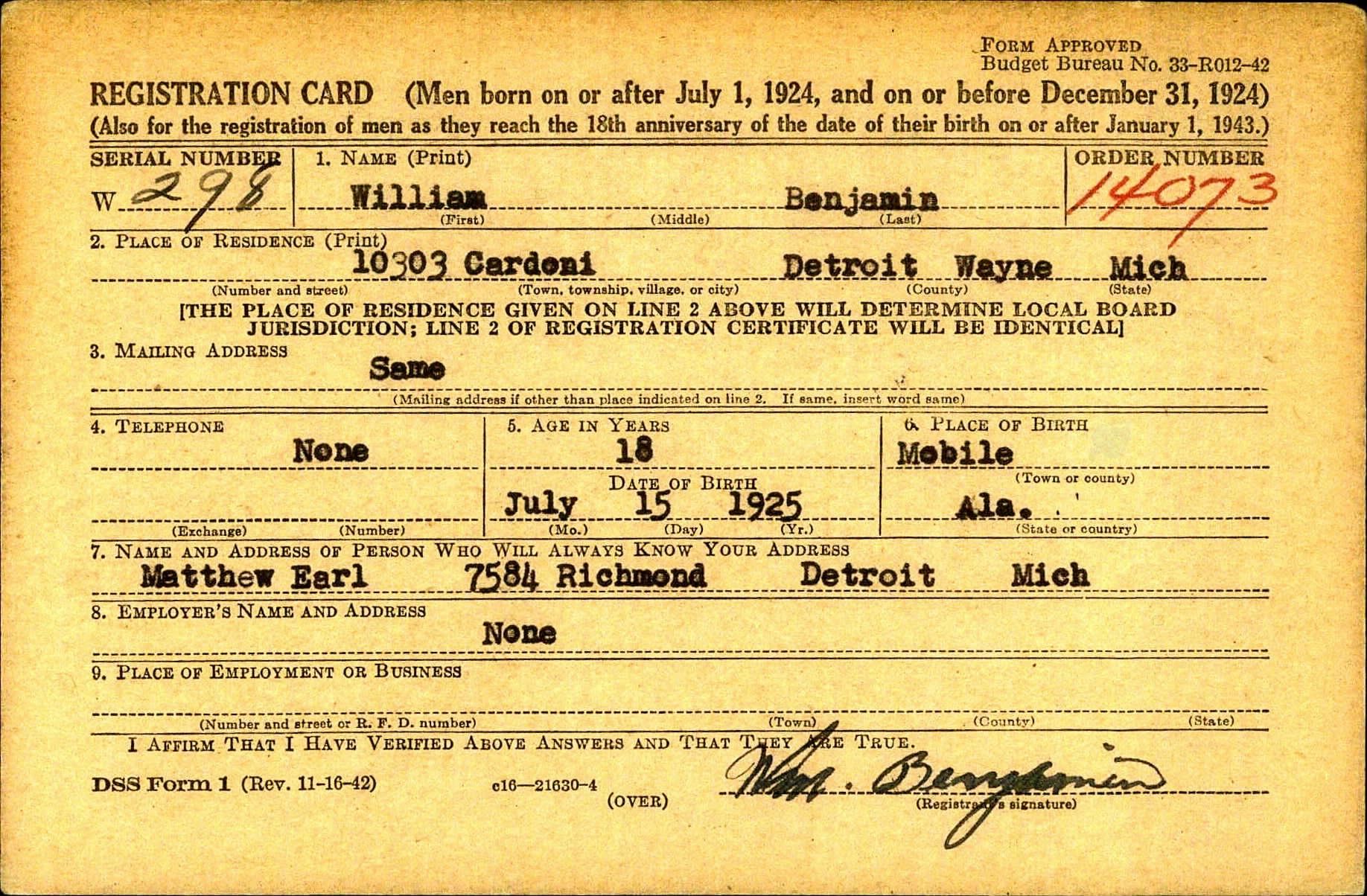Nicknamed "Papa Zita", Benny's groove was so infectious and his beat was so steady, Gordy would sometimes refuse to record unless Benny and bass player James Jamerson were present. Benny's playing can be heard on such classics as The Miracles' "Shop Around", The Temptations' "My Girl", The Isley Brothers' "This Old Heart of Mine", Barret Strong's "Money (That Is What I Want)", "I Heard It Through the Grapevine" by Gladys Knight and the Pips, and Stevie Wonder's "Uptight (Everything's Alright)", just to name a few.
Benny's life was cut short by a stroke at age 43 after years of substance abuse. Just 3 years later, The Funk Brothers also ceased to exist when Gordy relocated to Los Angeles in June 1972. And along with the rest of The Funk Brothers, Benny's playing was uncredited so he remains relatively unknown, despite being a creative part on some of the most recognizable hits of the era.
"He had a pulse—a steadiness—that kept the tempo better than a metronome." —Barry Gordy, Jr. on Benny Benjamin
Contributor: Dennis Lohr (46801850) • [email protected]
U.S. Navy - World War II∼The creator of the Motown drumbeat and the most beloved musician at Hitsville, Benny was Motown's first drummer, working with Berry Gordy in 1958. Known for his deft brushwork, latin-influenced grooves, and his explosive drum fills and pickups, Benny's signature drum style defined the Motown groove. Coming out of a big band-jazz background, Benny's beats swung much harder than any of the other R&B and Blues drummers residing in Detroit at the time, and his time was impeccable.
But the same couldn't be said for his promptness. Benny's excuses for often being late to Hitsville's recording sessions are legendary - including one where he claimed to have been sitting on his mother's step with his ex-old lady's boyfriend when someone pulled up in a car and shot him. He further endeared himself to his fellow Motown musicians when - right in front some European distributors Berry Gordy was trying to impress with his new operation - he asked the boss if he could "bum a fin." "The Fuehrer," as Benny referred to him, was not pleased. A lifelong heroin user and alcoholic, Benny's demons eventually caught up with him in 1968 when the ravages of his addictions stilled his drumsticks.
∼Musician. He was the primary drummer for Motown's in-house studio band named the Funk Brothers. He along with bassist James Jamerson provided the rhythmic anchor for the Motown in-house band. He was a member of the band from 1959 to 1969. He can be heard on such songs as Money (That's What I Want), Ain't No Mountain High Enough, What's Going On, My Girl, Ain't Too Proud To Beg, Shotgun and many more. He was inducted into to the Rock and Roll Hall of Fame in 2003.
Nicknamed "Papa Zita", Benny's groove was so infectious and his beat was so steady, Gordy would sometimes refuse to record unless Benny and bass player James Jamerson were present. Benny's playing can be heard on such classics as The Miracles' "Shop Around", The Temptations' "My Girl", The Isley Brothers' "This Old Heart of Mine", Barret Strong's "Money (That Is What I Want)", "I Heard It Through the Grapevine" by Gladys Knight and the Pips, and Stevie Wonder's "Uptight (Everything's Alright)", just to name a few.
Benny's life was cut short by a stroke at age 43 after years of substance abuse. Just 3 years later, The Funk Brothers also ceased to exist when Gordy relocated to Los Angeles in June 1972. And along with the rest of The Funk Brothers, Benny's playing was uncredited so he remains relatively unknown, despite being a creative part on some of the most recognizable hits of the era.
"He had a pulse—a steadiness—that kept the tempo better than a metronome." —Barry Gordy, Jr. on Benny Benjamin
Contributor: Dennis Lohr (46801850) • [email protected]
U.S. Navy - World War II∼The creator of the Motown drumbeat and the most beloved musician at Hitsville, Benny was Motown's first drummer, working with Berry Gordy in 1958. Known for his deft brushwork, latin-influenced grooves, and his explosive drum fills and pickups, Benny's signature drum style defined the Motown groove. Coming out of a big band-jazz background, Benny's beats swung much harder than any of the other R&B and Blues drummers residing in Detroit at the time, and his time was impeccable.
But the same couldn't be said for his promptness. Benny's excuses for often being late to Hitsville's recording sessions are legendary - including one where he claimed to have been sitting on his mother's step with his ex-old lady's boyfriend when someone pulled up in a car and shot him. He further endeared himself to his fellow Motown musicians when - right in front some European distributors Berry Gordy was trying to impress with his new operation - he asked the boss if he could "bum a fin." "The Fuehrer," as Benny referred to him, was not pleased. A lifelong heroin user and alcoholic, Benny's demons eventually caught up with him in 1968 when the ravages of his addictions stilled his drumsticks.
∼Musician. He was the primary drummer for Motown's in-house studio band named the Funk Brothers. He along with bassist James Jamerson provided the rhythmic anchor for the Motown in-house band. He was a member of the band from 1959 to 1969. He can be heard on such songs as Money (That's What I Want), Ain't No Mountain High Enough, What's Going On, My Girl, Ain't Too Proud To Beg, Shotgun and many more. He was inducted into to the Rock and Roll Hall of Fame in 2003.
